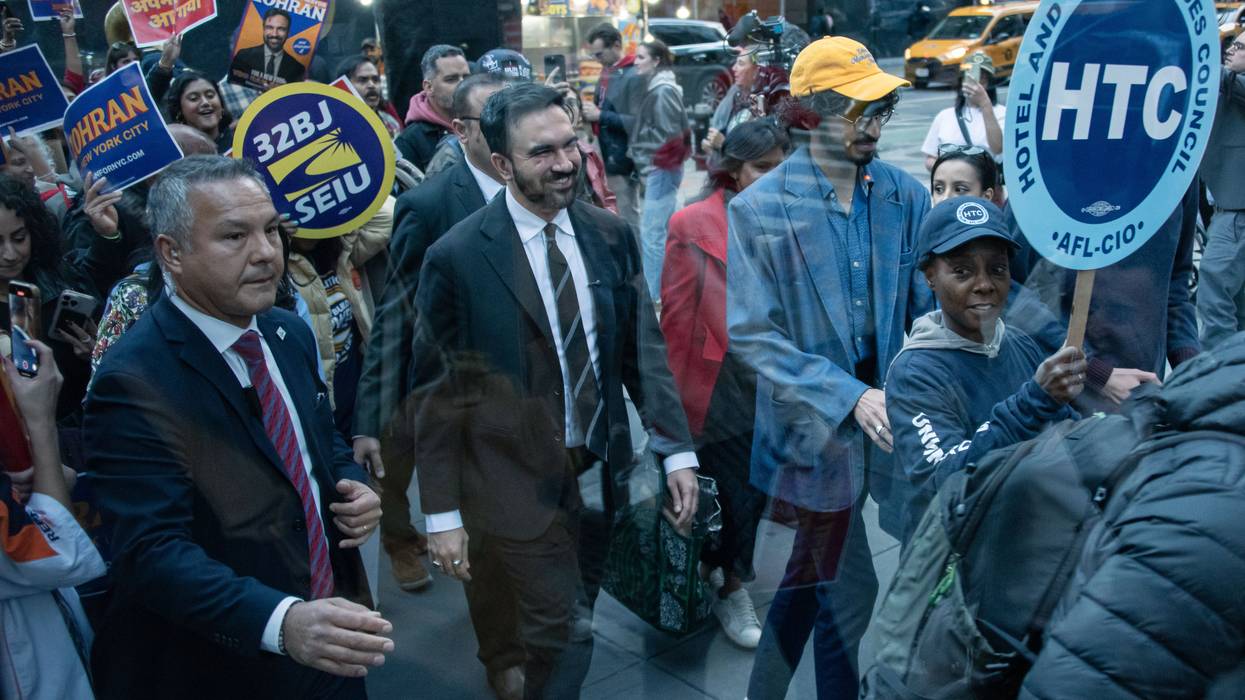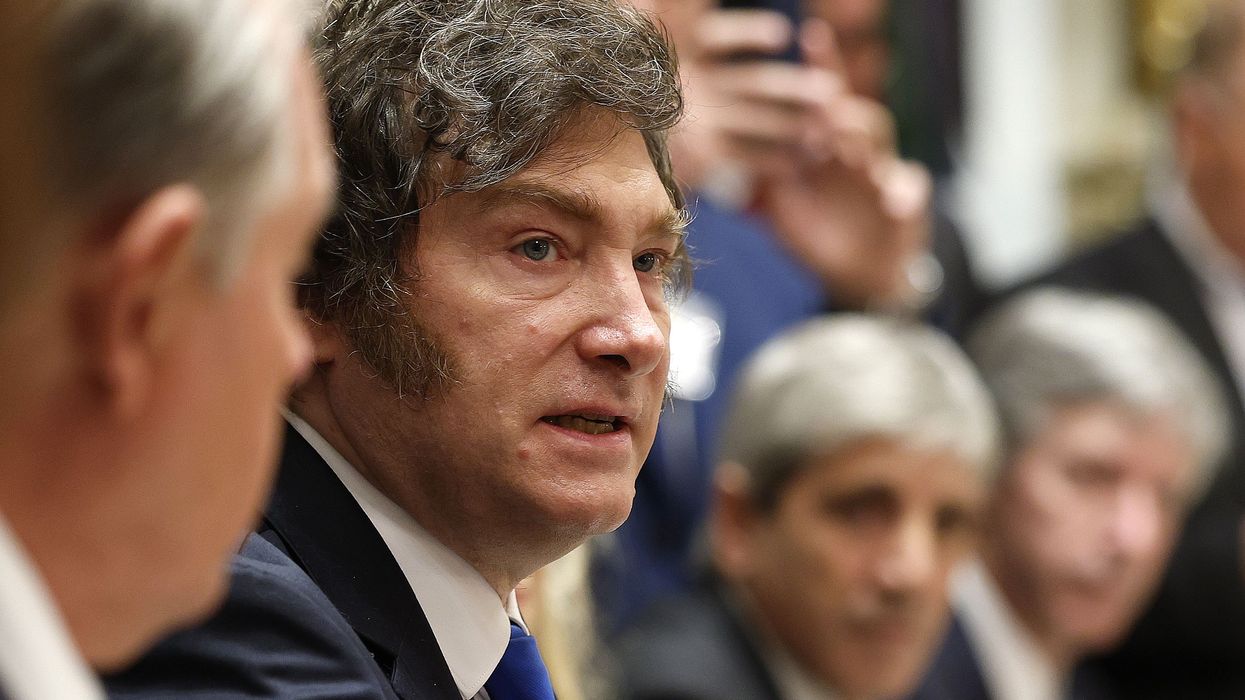"Look, Argentina is fighting for its life, young lady," Trump mansplained to the female reporter. "You don't know anything about it—they're fighting for their life. Nothing's benefiting Argentina. They are fighting for their life. You understand what that means? They have no money. They have no anything. They're fighting so hard to survive."
After slashing billions in foreign aid around the world this year, cuts that experts say are costing real lives in some of the poorest nations on earth, Trump went on to claim that it was his duty to help struggling Argentina, currently governed by his far-right friend and ally, President Javier Milei, who has driven the economy into a tailspin with his chainsaw-inspired austerity.
"If I can help them survive in a free world," Trump suggested he would do just that for Argentina. "I happen to like the president of Argentina. I think he's trying to do the best he can. But don't make it sound like they are doing great. They are dying, alright? They're dying."
Trump admitted last week during a cabinet meeting that the $40 bailout is aimed at helping what he described as a "good financial philosophy" of Milei, the far-right libertarian who has slashed pension payments for retired workers, trashed regulations, and eviscerated public spending in deference to corporate and capitalist profits.
Writing for Jacobin, Branko Marcetic argued earlier this month that what it boils down to is that Trump will find funds to salvage the failed policies of Milei, but not healthcare or other needs for American workers or their families.
"In other words," wrote Marcetic, "Trump is sending billions of Americans’ dollars to a foreign country to prop up a failing president who has run his country into the ground by following Trump’s own policy preferences. If Milei fails, Trump’s own, very similar austerity program will take a major blow too.
Soybean farmers across the US have been outspoken about how much Trump's tariff policies have harmed them this year, with China—historically the largest importer of US soybeans—shutting them out, even as they scooped up Argentinian soybeans at bargain prices earlier this year after Milei cut his nation's export tax.
Trump has promised soybean farmers a bailout of their own, but that process has stalled amid the ongoing government shutdown, which Republicans in control of Congress have maintained despite furious calls that doing so puts the healthcare of tens of millions of Americans at risk of soaring premium hikes or lost coverage.
Leading the charge for Trump's policy on Argentina—including $20 billion in US taxpayer funds to stabilize the nation's currency as well as creating a separate $20 billion fund of private investments—is Treasury Secretary Scott Bessent, who has said supporting Argentina is vital to US interests and will continue.
However, underneath the administration's support for Argentina lurks the presence of high-profile US investors, some of them closely connected to members of the administration, including Bessent allies and Wall Street players who have backed Trump.
Popular Information's Judd Legum has reported extensively on the financial interests benefiting most from the bailout scheme— and it's not US farmers or consumers. As Legum noted last week:
While farmers struggle to survive and the federal government is shut down, Milei is riding high thanks to the cash infusion from the Trump administration. “There will be an avalanche of dollars,” Milei said in a radio interview shortly before traveling to the White House. “We’ll have dollars pouring out of our ears.”
Speaking with The New Yorker's John Cassidy, former IMF chief economist Maurice Obstfeld explained that one "worrisome" dynamic when it comes to the Argentina bailout is that Bessent is repeatedly saying we will be there for the long term and we will do whatever it takes. He is effectively saying to foreign investors, ‘You will be able to get out whole.’”
As $20 billion has quickly morphed into $40 billion in financial backing of the flailing economy led by the slash-and-burn ideology of Milei, Trump said the US government is also considering buying up beef exports in an effort to control the price for US producers.
“We would buy some beef from Argentina,” he told reporters aboard the Sunday flight on Air Force. “If we do that, that will bring our beef prices down.”
However, with the government shutdown ongoing and Republicans refusing to budge on Democratic demands that healthcare costs be contained, there's no end in sight for relief when it comes to American families facing massive spikes in monthly premiums or loss of health coverage completely.
As Sen. Bernie Sanders (I-Vt.) noted last week: "If you're the President of Argentina, Trump gives you a $20 billion bailout. If you're an American whose health care premiums are about to double? Tough luck."




